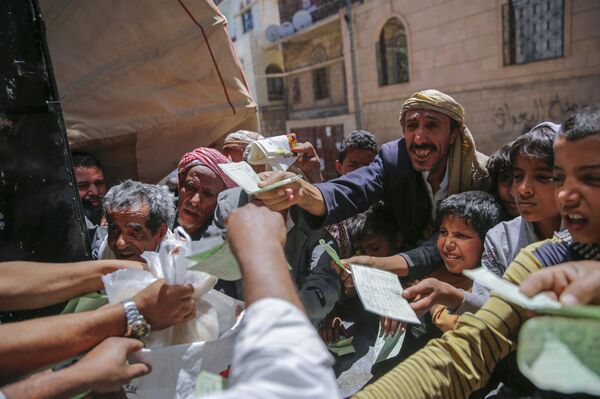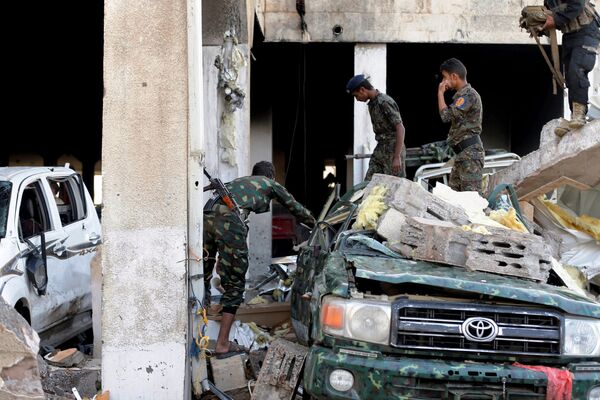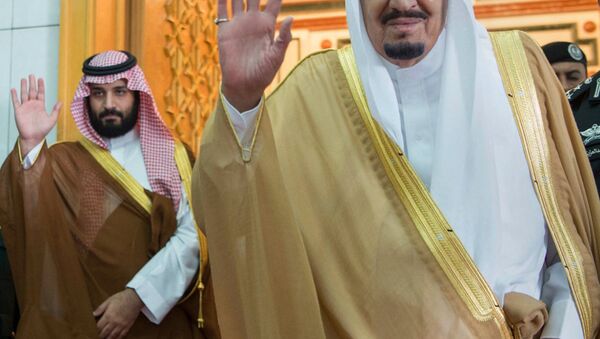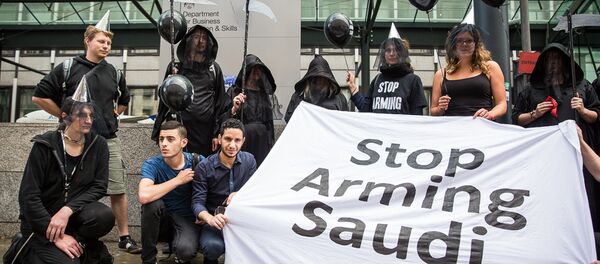Yemen is collapsing under the combined burden of a protracted civil war and a public health famine crisis.
UNICEF estimates that a child dies every 10 minutes from preventable causes.

The Saudi-led coalition is blockading Yemeni ports, preventing the import of vital aid supplies, and forces loyal to both sides have been accused of bombing and firing on hospitals and schools.
The International Committee of the Red Cross says there have been more than 160 attacks against medical facilities and personnel in the past two years.

However, despite this growing evidence of Saudi-backed atrocities, British Defense Secretary Sir Michael Fallon has called Saudi Arabia's Yemen intervention justified.
According to Mr. Fallon, Saudi Arabia is "just defending itself."
"Saudi Arabia is fully entitled to defend itself and its fully entitled to call on its friends in so doing. Saudi Arabia is being attacked by Houthi rebels across its Southern border with Yemen. It's had its towns and villages shelled by the Houthis," Sir Michael said on the BBC Today program.
The brazen simplification of a complex conflict, with multiple international powers engaged by proxy — including Saudi Arabia, Iran, the US and the UK — will unlikely deter human rights organizations who have been highly critical of the conflict.
The civil war began in February 2015, when Zaidi Shia rebels known as Houthis, ousted President Abdrabbuh Mansour Hadi.
Saudi Arabia quickly intervened with a coalition of nine Arab states, backed by the UK and US.
Meanwhile, the Saudis have labeled the Houthis as Iranian proxies, an accusation Tehran continues to vehemently denied.
In April 2017, two human rights groups — Save the Children and Watchlist — called on the UN to put Saudi Arabia back on a list of violators of children's rights.
However, with weeks to go until the 2017 UK election, Sir Michael re-stressed the Conservative government's position that Saudi Arabia is an "enormously important trading partner," and refused to clarify whether his party will halt arms sales to the Saudis.
"We share intelligence with Saudi Arabia about terrorism. We gain from that relationship. Every arms export application is very carefully looked at and judged by our criteria — some of the toughest in the world. But Saudi Arabia, equally, is entitled to defend itself," he said.
Meanwhile, Labour leader Jeremy Corbyn is believed to be in favor of banning arms sales to regimes the party deems repressive, including Saudi Arabia.
The issue has exposed the UK to accusations of hypocrisy.
Michael Fallon supports arms sales to Saudi Arabia, Britain complicit in its aggression on Yemen — Obama’s war, now Trump’s #CrimesOfBritain pic.twitter.com/6Ym3Mqumxm
— Sibby (@Sibby72) April 24, 2017
My cartoon — where does defence secretary Michael Fallon draw the line with Saudi Arabia?#GE2017 #r4Today pic.twitter.com/4ab4PYX4ib
— Martin Shovel (@MartinShovel) May 11, 2017
Michael Fallon's defence of the Saudi war in Yemen is stomach-churningly disingenuous. This is not a war of self-defence.
— James Jones (@jamesjonestv) May 11, 2017
Since 2010, the UK has sold arms to 39 of the 51 countries ranked "not free" on the Freedom House "Freedom in the world" report. Freedom House is a US-based human rights organization.
And in December 2016, Sir Michael confirmed that British-made cluster bombs, which are illegal under international law, have been used by Saudi Arabian forces in Yemen.
May 2016 — Amnesty exposed use of UK-made (also US, Brazilian) cluster munitions in Yemen https://t.co/qMbsAmanNT pic.twitter.com/aZHwhqwrOm
— amnestypress (@amnestypress) December 19, 2016
The bombs were manufactured before the UN's Convention on Cluster Munitions was adopted in 2008.
According to Human Rights Watch, cluster bombs "pose a threat post-conflict by leaving remnants, including submunitions that fail to explode upon impact becoming de facto landmines."
The UK government has said that the UK no longer manufacturers or sells cluster bombs.
According to UK Trade and Investment, Britain is the second biggest arms exporter in the world, worth billions of pounds every year.



